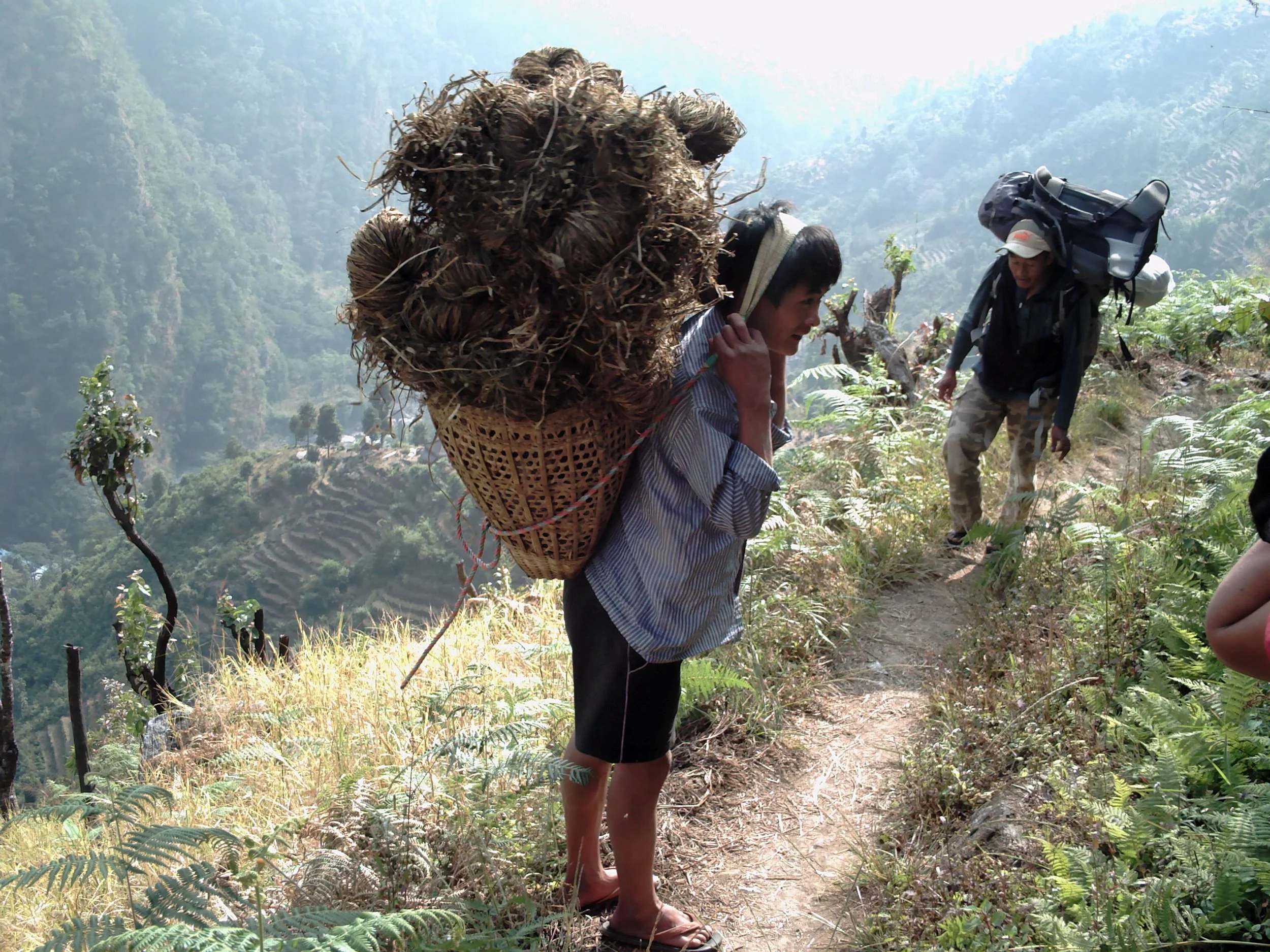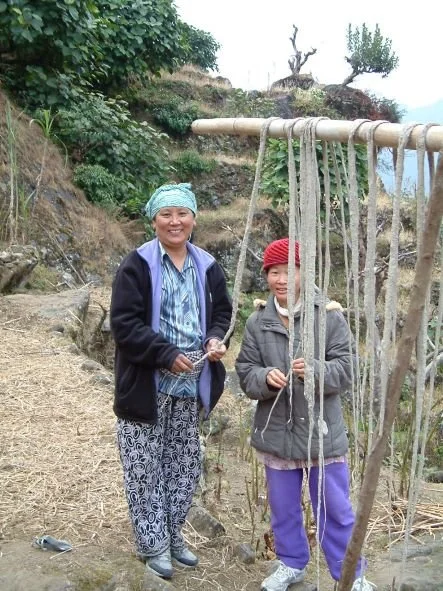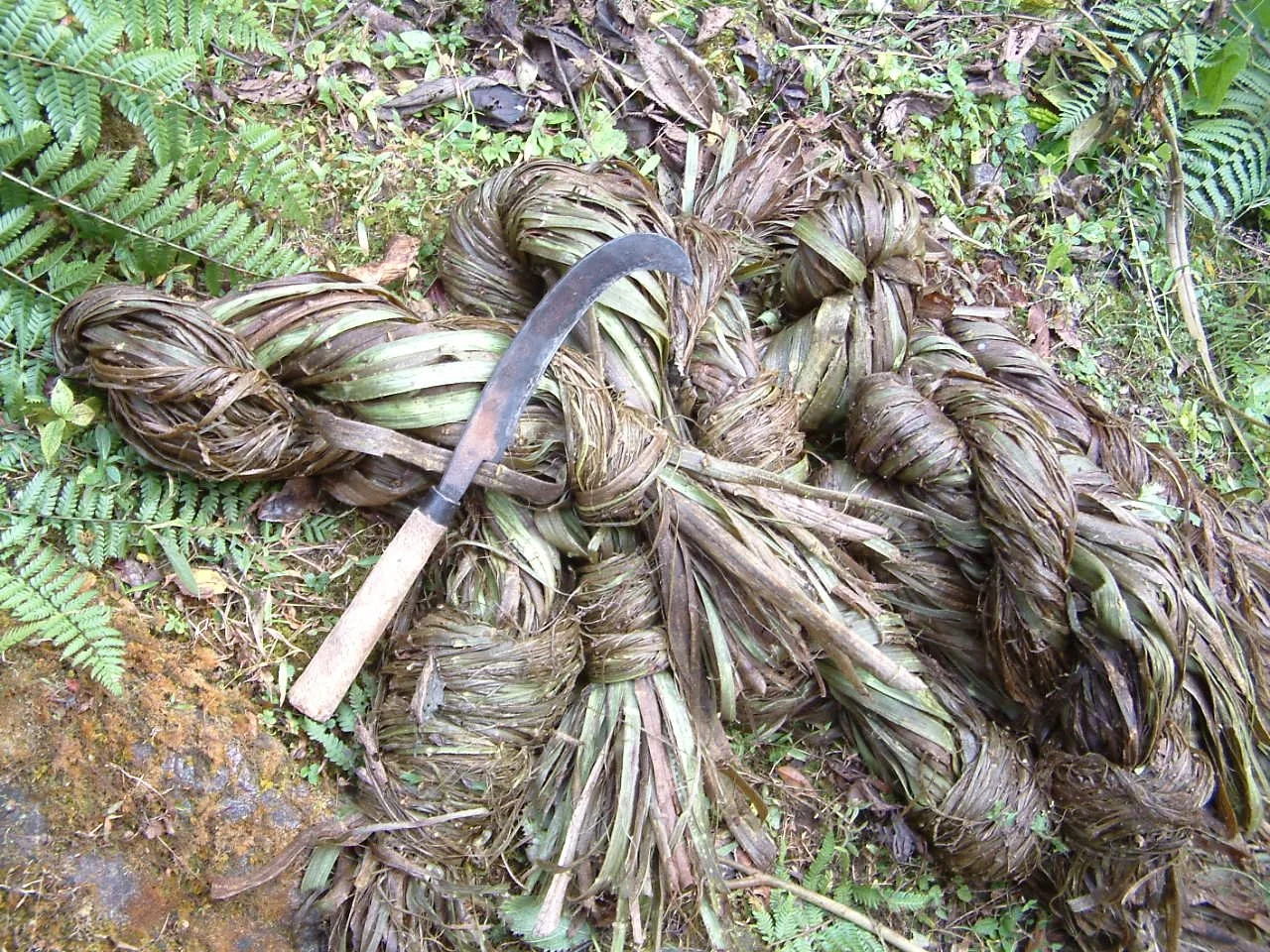
Our story
We are the Allo Cloth Production Club. We started in the 1980s with support from the Kosi Hill Area Integrated Rural Development Programme, funded by the British Government. We manage the design and sale of products made by families living in Sankhuwasabha in east Nepal, with support from the Dunsmore Nepal Textile Trust.
Life in the hills
The families in Sankhuwasabha belong to the Rai, descendants of the indigenous people of Nepal. They live on small, subsistence farms, where they grow their own food and keep livestock. Traditional crafts are a way for people to create an income, using the natural materials that grow all around them.
Working as a family
Families work together to harvest fibres from the stems of these plants, which can be woven into material that is smooth, strong and light. The stems are gathered at the end of the monsoon, between November and December, and the outer bark is stripped away. The exposed stems are then boiled and treated to separate out the fibres. The fibres are then hung out to dry in the sun, before being spun and woven by hand.
Spun from allo
Long-established techniques of spinning, weaving and knitting are used to create contemporary designs in a soft, luxurious material. The yarn is spun on lightweight hand spindles. One end is wrapped around the waist, the other end held under the left arm, so spinning can be done while walking to market, relaxing at home or looking after the animals. Each scarf and shawl design is different and unique to the knitter, and every purchase generates income for communities.
Changing times
Seasonal migrations to towns and cities within and outside of Nepal is common among families, and growing numbers of young people are leaving home to study or for jobs. This has created pressure on the women in the community to run the farms while at the same time preserving traditional skills.


